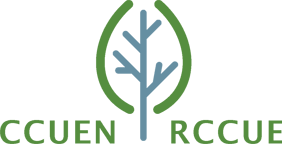
The Bachelor of Tourism and Outdoor Recreation Diploma programs at Capilano University offers several different courses in environmental education. Students in year 1 & 2 are required to take Natural History for Outdoor Leaders where they develop the skills to interpret the natural environment in this field-based course, through the application of principles and concepts of ecology, the identification of flora and fauna, and the interpretation of local ecosystems. Environmental Stewardship is also a required course. In it, students examine the role of the outdoor recreation professionals in environmental stewardship. Topics include: conservation issues, environmental ethics, policy and planning and sustainability. From there students have an opportunity to take their learning further with Project Change: How to Think and Act Like a Changemaker. In this course students become leaders and agents for change in the community. Through an experiential learning process, students develop the abilities and skills to think and act like a change-maker. The backbone of the course is a major project, which gets students into their communities to create positive social or environmental change. By measuring and reporting the impacts of their projects, students are able to see the real contribution they make in the world.
In the upper level courses (year 3 & 4) students have two environmental elective choices. These include: Environmental Stewardship: Advanced Principles and Applications, where students review principled negotiation, the ethics of environmental stewardship, the environmental legislative regime and provincial resource policy, geographical information system applications, negotiations of land use agreements, co-management approaches, and sustainability issues using case studies. They also have an opportunity to take Tourism and Climate Change. In this course, students explore the climate change challenge facing the global tourism industry. They examine key trends and issues impacting the industry; discuss technological and policy solutions for addressing this challenge; and evaluate some initiatives undertaken by industry to be in front of this crucial issue. Finally, students learn to be an agent for change in meeting the climate change challenge.
- Faculty of Global and Community Studies
- School of Outdoor Recreation Management
- School of Tourism Management
- School of Global Stewardship
